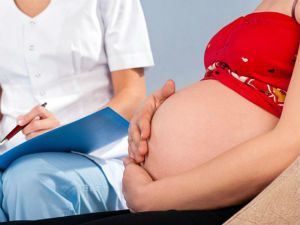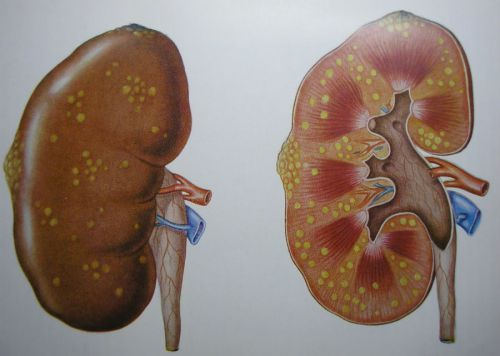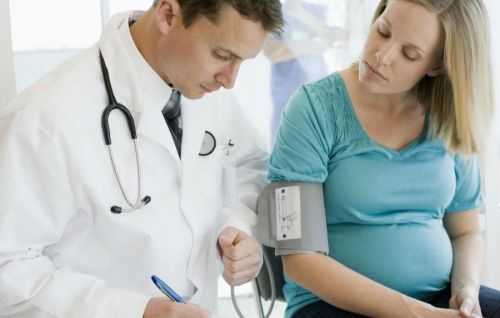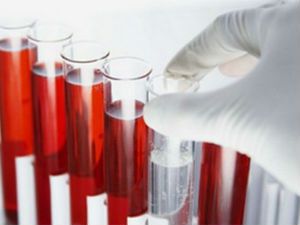Pregnancy is not only a joyous time, but also quite an exciting period, during which the expectant mother is experiencing a lot of anxiety.
One of the reasons for concern are problems with urination.
But some of them are quite harmless and normal, for example, frequent urination during pregnancy and others should force a woman to urgently visit the doctor (pain, burning, delayed urine output, etc.).
The main causes of problems
Depending on the duration of pregnancy, it is possible to distinguish between physiological and microbial factors affecting the frequency and quality of urination.
So, the first trimester is a time of hormonal changes that is one of the main factors in the increase of urination in the toilet.
In the second trimester, in the absence of any infectious or systemic diseases, usually there are no problems with urination.

The third trimester starting from 30 weeks, is characterized by the return of frequent urination. During this period the main role in this process is the omission of the fetal head into the pelvis of the mother’s body, which leads to increased pressure on the outer wall of the bladder.
The baby is big enough and the enlarged uterus compresses literally all the organs of the abdomen and pelvis, including the bladder
Also provoking factors include first kidney of the baby and a large amount of amniotic fluid, a change which is every few hours.
The increase in the number of urination in the toilet while carrying the baby is a normal phenomenon that does not require any adjustment of supply and amount of drinking (if not the swelling).
But any additional discomfort during urination may indicate an infection of the urethra, bladder or kidneys. Such conditions require immediate medical attention to the moment, as the process will affect the system of the fetus.
Possible problems in the first trimester
The first three months of pregnancy are considered the most important in terms of laying and formation of all organs of the future baby.
The admission of most drugs are forbidden in this pregnancy
The expectant mother needs special care to treat prevention of diseases at this time and inform the doctor about any discomfort during urination.
An increase in the frequency of urination
Even before the moment the pregnancy test shows two stripes, a woman’s body begins to change. Thus, the volume of blood in the first weeks of increases by 25-30%, create amniotic fluid, changes hormonal status, more intense becomes the blood supply to the pelvic organs. All this inevitably leads to an increase in the frequency of urination in the toilet. Therefore, frequent urination during pregnancy is considered to be one of the first signs.
In addition, although the embryo still consists of only a few cells, but the uterus under the influence of hormones becomes more friable and slightly increased in size. The bladder is the constant pressure on my back wall and sends a signal to the brain about the need for evacuation even in case of incomplete filling.
Frequent urination in early pregnancy is normal but only in cases when there are no more symptoms of discomfort.
Pain
Pain, cramps, burning during urination in pregnancy – the causes of these symptoms quite a lot, but the most common are:
- cystitis;
- pyelonephritis;
- urethritis.
Cystitis
Major urological diagnosis during pregnancy is cystitis. Some women even consider it one of the first signs of pregnancy.

As a result of inflammation of the mucous lining of the bladder is the violation of the nervous regulation of emptying it. There are frequent urination, aching pain in the region of the pubic bone, a burning sensation and cramps in the process of emptying the bladder (especially at the end of the process).
Which drugs to choose for treatment should be decided only by the doctor. When properly chosen and timely treatment of the disease is 5-7 days, without causing any complications or consequences for either mother or baby.
Lack of treatment can lead to the development of inflammation of renal tissue (pyelonephritis)
Pyelonephritis
Inflammation of the inner tissues of the kidney may occur as a complication of other diseases of the urinary system or as an independent disease.
Pyelonephritis is the main symptoms are:
- pressive pain at end of urination;
- pain in the lumbar region (from two or only one side);
- the increase in body temperature;
- cloudy urine and the blood (not always possible to determine with the naked eye);
- urinalysis will reveal increased protein content.
Pyelonephritis is a dangerous condition and has the bacterial origin of. Through the bloodstream pathogens to cross the placental barrier and cause irreparable harm to the health of the baby.
Most often, when the diagnosis in pregnant women required admission and treatment in hospital.
Urethritis
The vast majority of cases, urethritis is the first step in the emergence of diseases of the urinary system.

Urethritis is inflammation of the inner lining of the urethra.
In the first trimester, the inflammation often is fungal in nature and is caused by fungi of the genus Candida. This is due to the fact that this pregnancy local immunity is slightly reduced (to prevent rejection of the ovum), which is a favourable condition for enhanced reproduction of fungi.
A parallel may be fungal vaginitis or thrush
Rarely urethritis is caused by bacteria.
Second trimester
At this time, the womb slightly changes its position, shifting a bit to the center and up. This leads to a reduction of pressure on the bladder. Frequent urination during pregnancy stop worrying about the woman.
The second trimester is considered the most peaceful time throughout pregnancy. Therefore, any inconvenience or discomfort during urination is a symptom of disorders in the urinary system.
In the second trimester the woman may experience the same infectious diseases that in early pregnancy:
- cystitis;
- urethritis;
- pyelonephritis.
Regular visits to the gynecologist and urine samples will help to identify the disease in its early stages. During this period, the list of permitted drugs is much higher than in the first trimester.
Third trimester
In the final stage of pregnancy comes back again frequent urination, especially at night. It is caused by the physical factor – the uterus has descended into the pelvis, creating pressure on upper part of the bladder. And again, if there are only frequent urination, it is the norm. But when you attach additional symptoms requires an accurate diagnosis, as delays in treatment at later stages or threatened premature birth, or infection of the fetus.
If sharp pains, burning sensation, pain in the bladder and feeling of incomplete emptying may be suspected the presence of cystitis. Because the enlarged uterus, partially squeezing the bladder and ureters, can cause urinary retention, which would be a very favorable environment for bacteria.
When dull pain after urination, pain with one or from two sides of the waist it is likely to be pyelonephritis.
In the urine analysis will identified the protein and red blood cells
If there is a burning sensation or cramps in region of the urethra and it can tolerate without medication, the diagnosis will sound like urethritis. In the third trimester, as in the first, often there is Candida urethritis in the background of vaginal candidiasis.
Urinary retention, difficulty urinating during pregnancy, reducing the daily volume without adjustment of the mode drinking is a dangerous symptom.
First, it can be a sign of ureterohydronephrosis, when the uterus constricts the ureter and the urine begins to stay in the kidney, leading to its substantial increase. Without urgent action condition can result in kidney failure.

Second, the rare urination with a decrease in daily urine volume, a parallel increase in the blood pressure and edema may indicate the early nephropathy of pregnancy (first stage of preeclampsia). But not always are all three symptoms of this condition, therefore, even a single manifestation in the form of urinary retention must be reported to the doctor for a series of diagnostic procedures.
Nephropathy during pregnancy requires monitoring of a woman in a hospital
Urinary incontinence (when laughing, sneezing, coughing) usually starts only in the later stages of pregnancy and not all women. This condition is also considered a variant of normal and spontaneously after childbirth.
What to do
If you have any issues, especially if there is pain when urinating during pregnancy, must inform the doctor. To diagnose or refute the presence of disease can tell the usual urine test.
In cases of dispute or for a more detailed diagnosis can be used:
- blood test;
- Ultrasound of the bladder;
- Ultrasound of the kidneys and ureters.
Other types of studies are extremely rare in cases when the mother’s life is in danger (x-ray, CT, MRI, etc.).

Independent methods of monitoring the status of work of the urinary system include:
- regular measurement of blood pressure;
- comparison of consumption and output of fluids;
- timely detection of the presence of edema;
- regular visits to the gynecologist, and urine samples.
Control weight gain is an additional indicator of the presence of internal swelling
Usually in addition to the basic diagnostic work, especially if the woman pulls the lower abdomen, conduct a series of tests to determine the status of the fetus:
- Doppler placental and renal vessels (measured velocity);
- CTG fetus;
- obstetric ultrasound.
This allows you to identify the problem (if it exists) is still in utero development, and many of them may be cut short even before birth.
During pregnancy, a woman is responsible not only for her life and her health directly affects the health and life of another person. Therefore, any problems with urination in this period should be resolved without delay.



